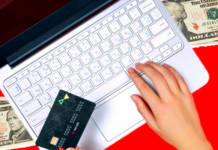NOTICE: This post references card features that have changed, expired, or are not currently available
This is the sixth and final post in a series dedicated to analyzing options for earning points and other rewards when paying federal taxes. If you haven’t already, please review the earlier posts:
- Buying miles and points from the IRS: debit cards
- Buying miles and points and cash from the IRS with credit cards
- Buying perks and points from the IRS with credit cards
- Buying miles and points from the IRS with Amex gift cards
- Buying miles and points from the IRS with Visa/MasterCard gift cards
In the posts outlined above, I concluded the following:
- Using a debit card that offers miles for debit purchases can be a great deal since the cost per point will be extremely low (especially for large tax payments).
- You can earn a small profit by paying with a 2% cash back (or better) credit card.
- Using a points or miles earning credit card (especially one that offers bonus points for big spend) can be an inexpensive way to buy points or miles, but you should be sure that you’ll use the points or miles for high value redemptions before you invest in them.
- Another good option is to use a credit card that offers perks for high spend such as elite status, free hotel nights, or companion passes. Keep in mind, though, that all of these potential perks have one thing in common: they are worth nothing unless you use them.
- Buying Amex gift cards at a profit involves many hassles and potential problems, so I don’t recommend this route for paying taxes. And, If you do buy Amex gift cards at a profit, there are better ways of using them.
- Buying Visa or MasterCard gift cards can be a great way to increase credit card rewards, but using them to pay taxes can be more trouble than they’re worth.
Reloadable prepaid cards
There are many different types of reloadable prepaid cards. The Visa and MasterCard varieties are special in that they can be used as true debit cards. This is important with regards to paying taxes because the processing fees for large federal tax payments are much cheaper with debit cards than credit cards. Tax payment fees for debit cards range from $2.99 to $3.95 per transaction whereas fees for credit cards range from 1.88% to 2.35%. So, tax payments of $215 or more will have lower fees with debit cards than credit cards. The savings grow larger as the size of the tax payment increases.
In my recent post “Vanilla Reloadables” I highlighted a number of reloadable prepaid cards that can be loaded with Vanilla Reload cards. In addition to these, there are many other varieties of reloadable cards that can be loaded via other types of reload cards (see “The reload game is on“). And, there are some that can be loaded directly by credit card. For this analysis, I’ll assume that Vanilla Reload cards are used to load a MyVanilla debit card. I expect that the results will be similar for other types of cards.
Paying taxes
When looking to use a reloadable prepaid debit card to pay taxes, there are three costs that need to be calculated: cost to reload card, per use fee for debit transactions (or monthly fees), and the tax payment fee. With the MyVanilla debit card, the cost to reload the card (via Vanilla Reload cards) is $3.95 per $500. There is no monthly fee, but the per use fee is 50 cents. And, with the Pay1040.com service, the cost per tax payment is a flat $2.99 fee. For the moment, we’ll assume that the credit card used to buy Vanilla reload cards earns only 1 point per dollar. We can then calculate the cost per point paid via tax payments:
|
Tax payment amount |
Fees |
Points earned |
Cost per point |
| $1000 | $3.95 x 2 + $.050 + $2.99 = $11.39 | 504 x 2 = 1008 | 1.1 cents |
| $2500 | $3.95 x 5 + $.050 + $2.99 = $23.24 | 504 x 5 = 2520 | .9 cents |
| $5000 | $3.95 x 10 + $.050 + $2.99 = $42.99 | 504 x 10 = 5040 | .85 cents |
As you can see above, the cost per point goes down with larger tax payments. The MyVanilla debit card has a $5,000 limit on debit transactions, though, so .85 cents per point is the lowest you can go with this card.
More points
In some cases, it is possible to buy reload cards (or gift cards used for reloading reloadable cards) at a store where your credit card earns extra points. For example, quite a few cards earn bonuses at gas stations, one card (Blue Cash Preferred) earns 6% cash back at US Supermarkets on up to $6,000 (then 1%), and occasionally an offer pops up for a card offering 5X or 5% back at drug stores, grocery stores, and gas stations. For more information about credit cards that earn category bonuses, please see “Best Category Bonuses.”
Another way to earn more is to use a credit card that offers extra points or perks for high spend. These are covered in the posts “Buying perks and points from the IRS with credit cards,” and “Best Big Spend Bonuses.”
Finally, don’t forget about cards that offer more than 1 point per dollar for all spend. Please see “Best rewards for everyday spend.”
The chart below shows the cost per point for paying taxes at 1X, 2X, and 5x:
|
Payment amount |
1X cost per point |
2X cost per point |
5X cost per point |
| $1000 | 1.1 cents | .55 cents | .22 cents |
| $2500 | .9 cents | .45 cents | .18 cents |
| $5000 | .85 cents | .43 cents | .17 cents |
Obviously, with higher bonuses, the cost per point goes down significantly.
Is it worth it?
Whether or not buying points at the rates shown above is a good deal depends upon the types of points you would earn, how you would use the points, and what other alternatives you have. That being said, if you can do better than 1X earnings, then I think you’ll find that this is a good deal with just about any point program. The real question is whether you can do even better with other methods. For example, if your reloadable prepaid card allows you to transfer funds to your bank account for free, then you can earn just as many points and avoid the $2.99 tax payment fee by paying taxes by check. Or, even better, transfer funds to your SunTrust account and pay taxes with the SunTrust debit card in order to earn points both from your credit card and from the SunTrust debit card!
What about Bluebird?
The Bluebird card from American Express, like the MyVanilla card, can be loaded with Vanilla Reload cards. Unlike MyVanilla, though, Bluebird allows bill payments to be made via paper checks. So, why not load up Bluebird and pay taxes by check? You can do that (although some people have reported problems with getting their checks preauthorized), but there’s no real advantage to doing so. Bluebird allows you to transfer funds directly to your bank account for free. So, I believe you’ll find it easier to transfer money to your bank and pay taxes from there than to pay with Bluebird.
Conclusion
If you have a reliable method for earning credit card rewards while reloading a reloadable prepaid card, then using the prepaid card to pay taxes can be very rewarding. That being said, you might be able to do even better with a combination of reloadable prepaid cards and point earning debit cards.





[…] Buying miles and points from the IRS with reloadable prepaid cards […]
Mr. Cool: read this: https://frequentmiler.com/2013/08/22/where-did-bluebirds-transfer-money-button-go/
“Bluebird allows you to transfer funds directly to your bank account for free.”
-how please?
GetToThePoints: Please email your questions to me. frequentmiler at gmail.
.
Brandon: The MyVanilla is probably the best nationally available option that works as a debit card. Yes, many have been shut down, but I doubt it was from paying taxes with the card. Unfortunately, I don’t have any data as to what is safe.
Jeremy: The registered version of MyVanilla is the one you would want to use since it allows up to $5K in payments.
.
Mary Jane: Thanks!
.
HikerT: I agree with what you wrote, but I’m not sure how it differs from my conclusion. ?
Frequent Miler, I’m surprised that you used the Myvanilla Debit as an example for this article, because it’s notorious for shut-downs. In your opinion, what’s a safe amount of money per month to load on the Myvanilla Debit? Or do you not recommend it for tax payments or just straight manufacture spending at all, and were just using it for the sake of doing a cost per point calculation?
Thanks for putting all the info in one place. However, I find it quite confusing. I think a redo of the summary page might be in order. Do this, do that, this works, this doesn’t, I am pretty unsure at this point.
Can I attempt to summarize? To pay taxes or any other bills for that matter purchase Vanilla reload cards (not the MyVanilla type) at an office supply store with your Chase card (not sure which Chase card however for the bonus points), then use the Vanilla to fund a Bluebird card which can be used for a flat rate to pay taxes or tax estimate payments. Also not clear is which card provides 5x points at CVS which has the Vanilla cards near where I live. If I understand it right I can load $5000 onto the Vanilla card using a Chase card and earn 25,000 points if done at an Office Supply store and maybe a CVS. I can do this frequently, surely there has to be a limit set by Chase for bonus category points earned otherwise you could divert all Chase card spend to a Bluebird and earn mega points.
I have read a lot of bad stuff regarding Bluebird and customer service and other issues such as funds being put on hold. Is there another debit card with no transaction fees that can be used to pull off this scheme?
Please feel free to PM me. I am sure I will have additional questions that might be cumbersome to handle via this portal. However, others might get their questions answered if we do it here.
I’m not sure I agree with your conclusion. What makes reloadable prepaid cards rewarding has more to do with what method you use to load the card, not what method you choose to cash out.
Your analysis, as always, is amazing!
Are you advising against use of the My Vanilla Debit that is registered and allows for a larger debit transaction?